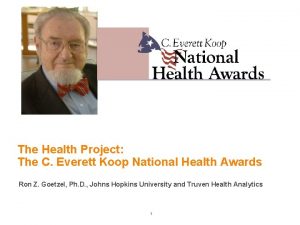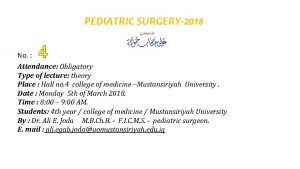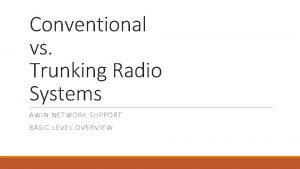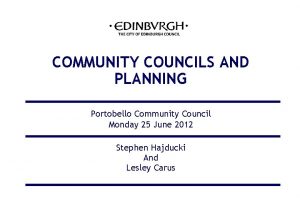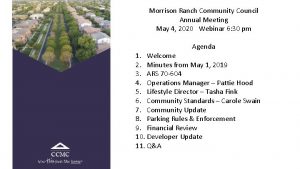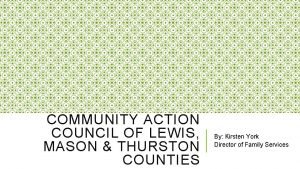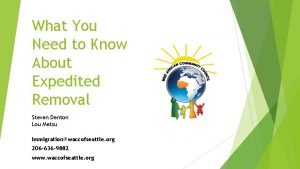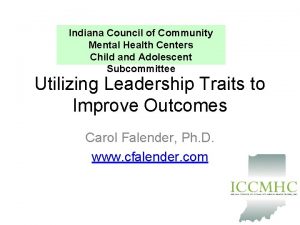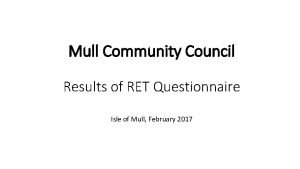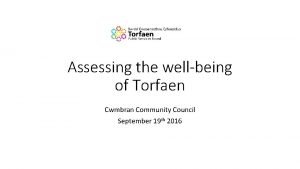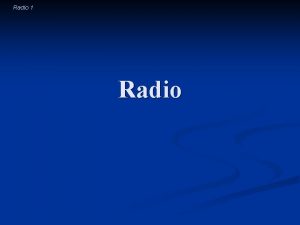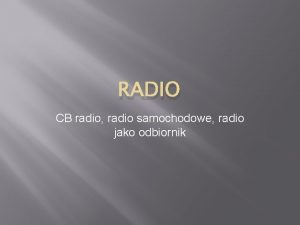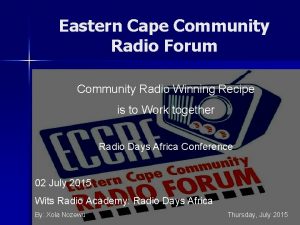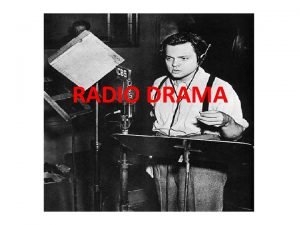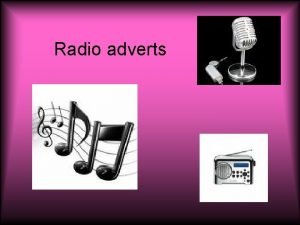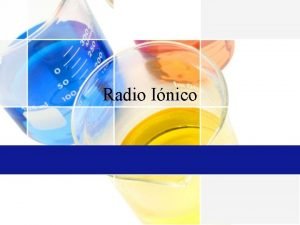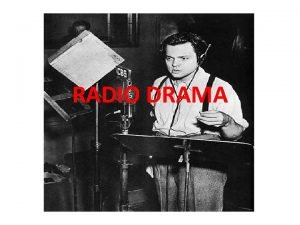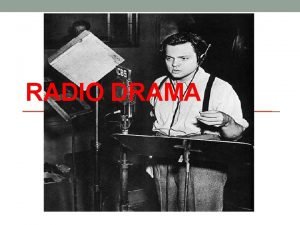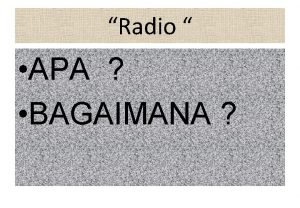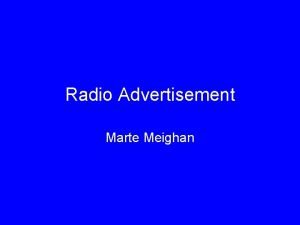KOOP Radio 91 7 FM Community Council Quarterly












- Slides: 12

KOOP Radio 91. 7 FM Community Council Quarterly Presentation Disability Awareness

Created by April Sullivan And Heather Ross Disability Access Symbols Available at: https: //graphicartistsguild. org/downloadable-disability-access-symbols/

Why Should KOOP Think About Disability Awareness? ● ● ● Respect for our fellow KOOP Volunteers Courtesy to our listeners Professional communicators Accessibility Inclusivity

National Center on Disability and Journalism Disability Language Style Guide - Basic Guidelines ● Refer to a disability only when it’s relevant to the story and when the information comes from a reputable source ● When possible, ask the source how they would like to be described ● When possible, use people-first language unless otherwise indicated by the source ● Avoid made-up words like “diversability” and “handicapable” https: //ncdj. org/style-guide/

Simple Tips ● See the person, not the disability ● Don’t talk down; Treat people as people ● Speak directly to the individual, not to a companion or interpreter ● Be considerate; some things may take extra time ● Relax; don’t worry if you use common expressions such as “See you later” or “I’ve got to run” ● Be mindful

When meeting people who use mobility devices ● If someone uses a wheelchair, don’t lean, hang on, or touch without permission ● If talking to someone who uses a wheelchair for longer than a few minutes, get eye-to-eye. Don’t force someone to physically look up at you ● Ask the person who uses a wheelchair if they want to be pushed before you do so

When meeting people who have vision loss ● Introduce yourself ● Use the person’s name or touch their arm when starting a conversation. Tell them if you are leaving or moving away ● Ask the person if they need assistance. If yes, allow them to take your arm, don’t grab theirs ● Don’t pet service animals. They are working, let them do their jobs

When meeting people with speech difficulties ● ● ● Give this person your complete attention Be patient Don’t give up or speak for the person Ask questions that require short answers if necessary If you don’t understand someone, don’t pretend. Repeat as much as you do understand go from there with the person

Invisible Disabilities Defined ● Invisible disabilities are disabilities that are not immediately apparent. An “invisible, ” “non-visible, ” “hidden, ” “nonapparent, ” or "unseen" disability is any physical, mental, or emotional impairment that goes largely unnoticed ● Ex: epilepsy; cognitive impairment and brain injury; the autism spectrum; chronic illnesses like multiple sclerosis, chronic fatigue, chronic pain, and fibromyalgia; d/Deaf and/or hard of hearing; blindness and/or low vision; anxiety, depression, PTSD, and many more https: //www. invisibledisabilityproject. org/

Do’s & Don’ts ● Don’t engage in Ableism: Discrimination or bigotry against people considered disabled by mainstream society. EX: calling people crazy ● Do increase accessibility: (Noun) The ability to be accessed; especially in reference to the design of products, devices, services, or environments for people with disabilities ● Don’t assume ● Do ask questions without hyperfocusing on the medical condition ● Don’t use terms like normal or ‘you pass’ to describe people ● Do know that having a disability does not mean a person is unhealthy. It is not having an illness like pneumonia, it’s having a medical condition

Next Steps ● Be mindful of your interactions and relationships with people ● Be mindful of our physical space at KOOP and where we are represented at events ● Create a policy and protocol for emergency situations ● When created, inform KOOP volunteers ● Create required emergency contact form for volunteers to fill out ● Be positive and enjoy our diverse, inclusive KOOP community and station ● Go KOOP!!!

Thank you! Don’t forget we celebrate the Anniversary of the ADA in July!
 Z everett koop
Z everett koop Bishop koop
Bishop koop Bishop koop
Bishop koop Osophagas
Osophagas Waterkamp rheine
Waterkamp rheine Trunking vs conventional radio system
Trunking vs conventional radio system Portobello community council
Portobello community council Morrison ranch community council
Morrison ranch community council Thurston county covid
Thurston county covid West african community council kent
West african community council kent Indiana council of community mental health centers
Indiana council of community mental health centers Mull community council
Mull community council Cwmbran community council
Cwmbran community council
